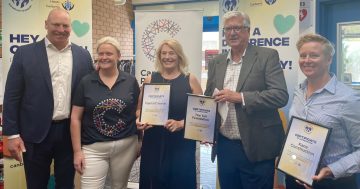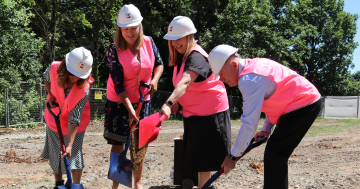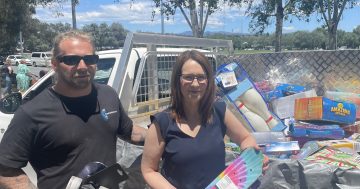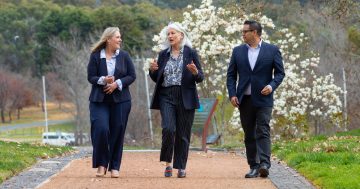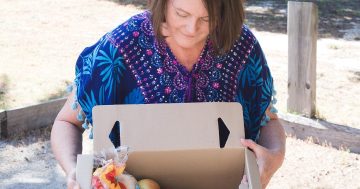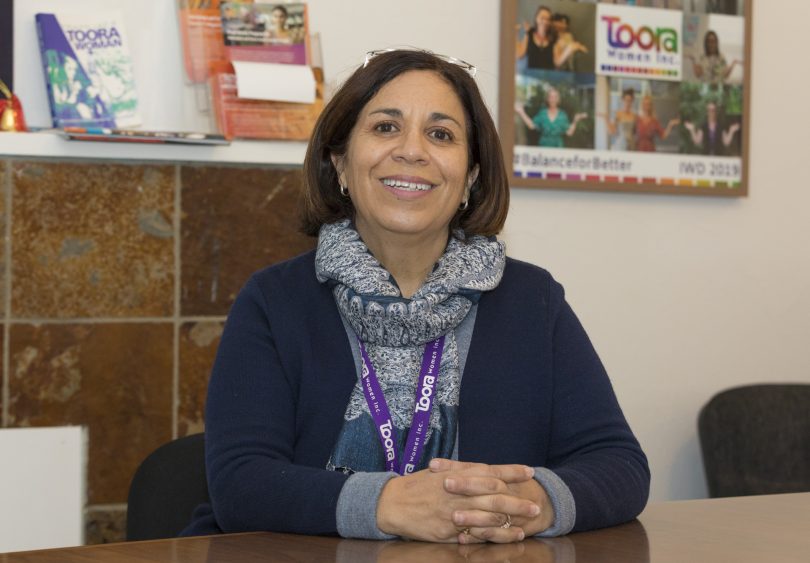
Katia Munoz is a child and family specialist for Toora Women Inc. Photo: Michelle Kroll.
Toora Women Inc is used to facing up to complex problems. Since 1982, the organisation has been helping women deal with traumas ranging from domestic and family violence, homelessness, substance abuse, mental health issues and the corrections system.
But executive director Susan Clarke-Lindfield didn’t foresee the day when she’d need to pay any price on the market for personal protective equipment, or finding the funds for wifi access across dozens of premises, or full professional cleaning for all their crisis accommodation.
Over the past three months, Hands Across Canberra (HAC), which helps Toora and more than 250 other local charities, has gathered qualitative data from three surveys and grant applications that demonstrate the damage wrought by the summer bushfires, COVID-19 and their compounding effects.
Results show that 97 per cent of Canberra charities have been hit by the crises of recent months, and 83 per cent of charities say that they will be significantly impacted.
“The situation sadly could not be more serious,” HAC chair Di Kargas Bray says. “Our local charities and community organisations were already under considerable pressure due to the devastating bushfire season. They experienced significant increases in the demand for their services.
“This is a real threat. Many of our not-for-profits could fold if something is not done.”
HAC is launching the Canberra Recovery Appeal this week to help our own local charities get the funds they need to keep operating.
Toora’s experience mirrors many: they’re funded by the Community Services Directorate, ACT Health and the Capital Health Network for their various functions, but those grants only cover the provision of ordinary services.
“Like most charities, we run on a tight budget. There is no money for crises and unplanned events,” Susan says.
“We had to scramble for personal protective equipment and pay any prices because we work with very vulnerable people. Now the government is helping to supply us, but whatever they can get their hands on has to be shared, so we are still going to private sources.
“Our clients need to be connected to the community but didn’t have the money for the data on their phones or the credit. We had to quickly buy desktop computers for our shared properties and pay for wifi installation so that our clients could stay in touch with their families and undertake case management.”
Toora operates 46 standalone premises for its clients and Susan says that early on they made the decision that they’d keep the women they work with safe whatever it took and worry later about how to pay for it.
That time has now come, but the pandemic is far from over.
“For example, we ask clients to clean a house thoroughly when they leave to get their bond back,” Susan says. “With changed health requirements, we’re now facing the possibility that we may have to bring in professional cleaners. We have a very high volume of turnover and these are furnished houses. I have no idea where we will find that money.”
Community donations evaporated during the pandemic and Susan says that while the ACT Government’s support has been helpful, Toora recognises there is no bottomless pit of cash that will meet the level of need across the community.
In March, HAC, the Snow Foundation and the John James Foundation launched a rapid response grant round of $500,000. HAC’s CEO Peter Gordon says the response was immediate and overwhelming from organisations facing significantly increased demand, new delivery challenges, a downturn in donations and inability to hold fundraising events.
Hence the Canberra Recovery Appeal.
“Our message is simple. If you are in a position to help and donate, please do. It will make such a difference to many charities who are struggling to keep their doors open, let alone offer support to those who need it,” Peter says.
“So please, if you’ve been wanting to help but have been unsure how, this is your opportunity to support those who support us”.














